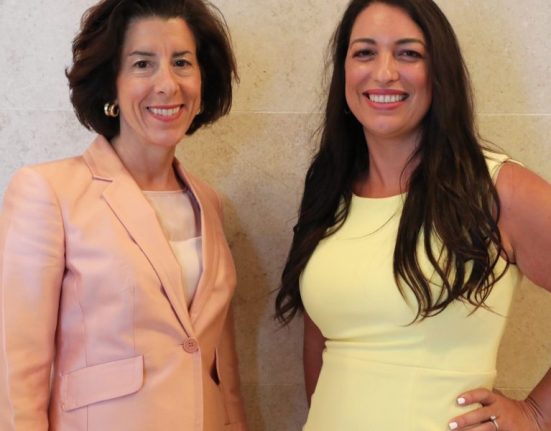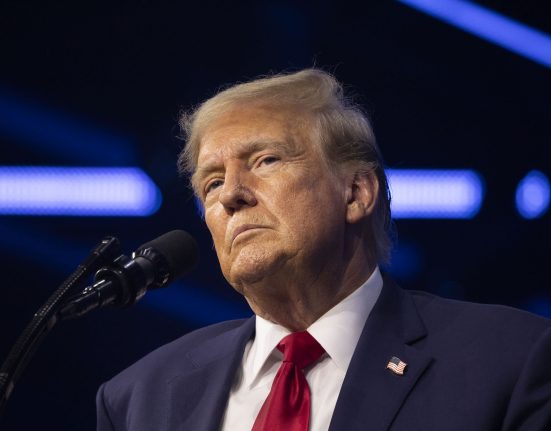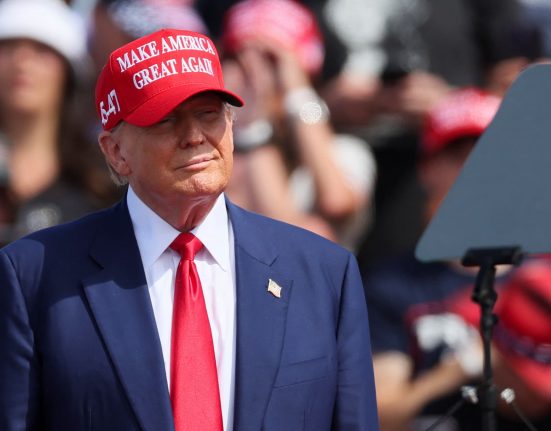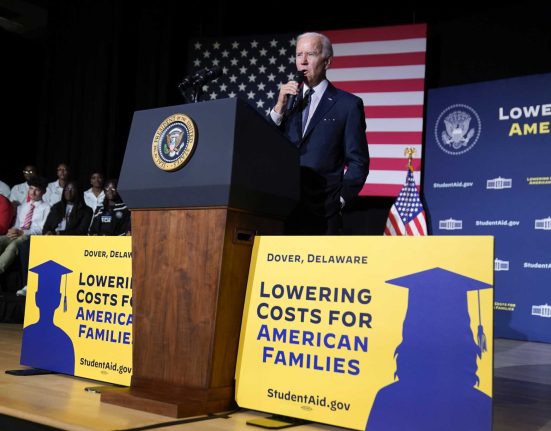Missiles standing near Gate 1 at the Francis E Warren Air Force Base in Cheyenne, WY. (Photo by: Ron … [+]
Against the backdrop of heightened trade tensions between China and the U.S., a recent presidential order targeting a crypto company located near a nuclear base points to increasing scrutiny of Chinese investments — a trend expected to outlast November’s presidential elections regardless of the winner.
President Joe Biden issued an order on May 13 prohibiting the acquisition of real estate and the operation of a crypto currency mining facility close to the Francis E. Warren Air Force base in Cheyenne, Wyoming.
MineOne Partners Limited, a British Virgin Islands company ultimately controlled by Chinese nationals, acquired the property in June 2022 and then made improvements to allow for use of the property for specialized cryptocurrency mining operations. The order directs both the prompt divestment of foreign ownership of the property as well as the removal of the equipment and improvements that were added to the property.
It is the first presidential prohibition relying on the expanded authority over real estate transactions granted to the Committee on Foreign Investment in the United States (CFIUS) and the president under the Foreign Investment Risk Review Modernization Act of 2018. CFIUS is a federal interagency committee tasked with evaluating the national security implications of foreign investments in the U.S.
The order is the eighth time a U.S. president has acted under the CFIUS statute to prohibit a foreign acquisition of a U.S. business or U.S. real estate – the seventh involving a Chinese-backed acquisition.
MineOne sold the sites to U.S. company CleanSpark just days ahead of the order. CleanSpark has said it was unaware of the order prior to the deal but will press ahead.
“The executive order and the involvement of CFIUS, both of which we were unaware of before signing the deal, has added an unexpected layer to the closing process, but we are working through these developments toward a satisfactory closing,” a spokesperson told Yahoo! Finance’s CoinDesk service in a statement.
MineOne has not commented.
CFIUS reportedly learned about MineOne Cloud’s real estate acquisition though a public tip — something Anne Salladin, a partner at Hogan Lovells, expects to see more of in the future.
“State and local governments have raised concerns in recent years about foreign acquisitions of land, increasing the risk that, as with this transaction, a public tip will lead to CFIUS scrutiny,” Salladin says. “Consequently, we expect more actions under the real estate regulations in the future.”
The Department of the Treasury’s press release announcing the order included a statement from Assistant Secretary of the Treasury for Investment Security Paul Rosen saying “CFIUS expects complete, accurate, and timely information, particularly when serious national security issues are on the line” – suggesting a trust deficit of sorts with MineOne Cloud might have driven CFIUS to refer the matter to the president.
In a review, CFIUS identified national security risks arising from the transaction relating to the proximity of the property to the air base, where intercontinental ballistic missiles are stored. CFIUS also assessed the risk associated with the presence of specialized equipment on the property used to conduct cryptocurrency mining operations, some of which is foreign-sourced.
“The proximity of the foreign-owned cryptocurrency mining facility to a strategic missile base and key element of America’s nuclear triad, and the presence of specialized and foreign-sourced equipment potentially capable of facilitating surveillance and espionage activities, presented a significant national security risk that led to CFIUS’s referral to the president,” read the release.
However, the case also highlights the limitations of the CFIUS real estate regulations that have prompted congressional and other interest, according to analysis by law firm Morrison Foerster.
“Had the MineOne property been another mile farther from Warren Air Force Base, it would not have been in ‘close proximity’, and the acquisition of the undeveloped property would likely not have been a covered real estate transaction,” the analysis read.
The prohibition comes alongside increasing efforts by state legislatures to restrict foreign ownership of real estate and significant debate over the role of state legislatures in protecting state and national security. This is a trend that is expected to outlast any potential change of presidential administration following elections in November.
“We are likely to see much more concern in this area regardless of administration,” says Salladin. “CFIUS’s approach under the Biden administration has largely followed that of the Trump administration, with continued heightened scrutiny of Chinese transactions, plus an increased focus on enforcement, irrespective of the home country of the foreign investor. We expect these trends to continue, regardless of who wins the 2024 presidential election.”
Although seven out of eight presidential prohibitions have involved Chinese firms, Salladin’s colleague Brian Curran, also a partner at Hogan Lovells, says CFIUS, and the U.S.’s foreign investment screening policy in general, is not necessarily aimed exclusively at limiting Chinese influence in the US economy.
“These presidential prohibitions certainly reflect heightened scrutiny of Chinese transactions, largely since 2012,” he says. “CFIUS also effectively scuttles other deals, many of which likely include a Chinese angle.”
For some deals, CFIUS makes clear to the parties that it will refer the matter to the president, whose decision would be public, leading the parties to decide to abandon their transactions or agree to a divestment before the transactions ever get to the president’s desk.
“But it’s also important to remember that presidential prohibitions have occurred in only a tiny fraction of the cases that CFIUS has reviewed,” Curran says. Between 2012 and 2022, CFIUS reviewed more than 2,000 notices, but during this timeframe, there were only six presidential prohibitions.
“CFIUS also addresses the national security risks posed by foreign investments through the imposition of mitigation, and such mitigation is imposed on a wide variety of foreign investors, including those based in allied countries,” he adds.







